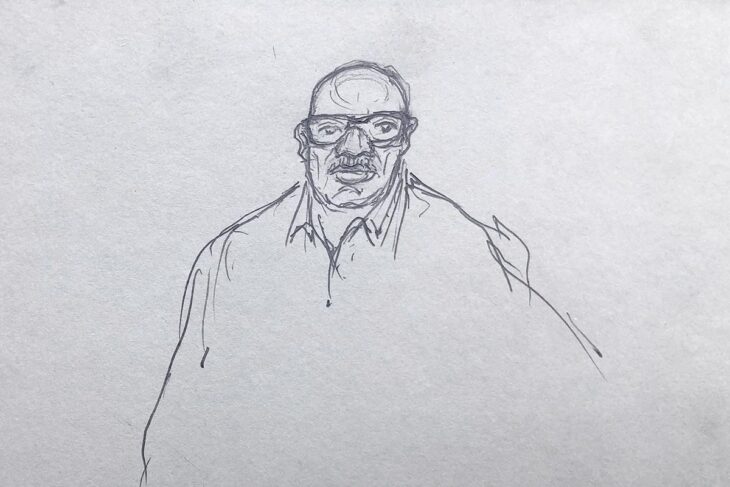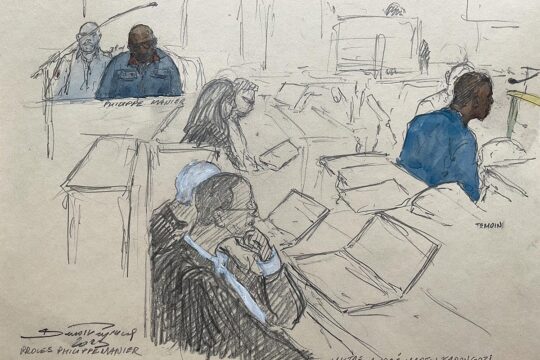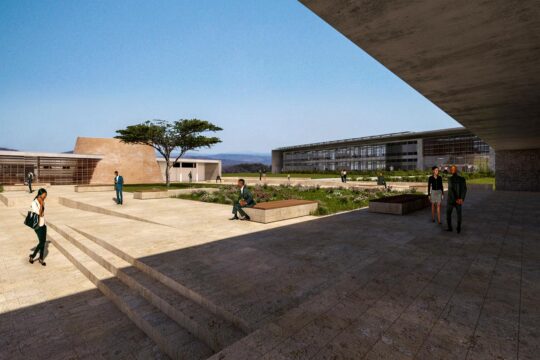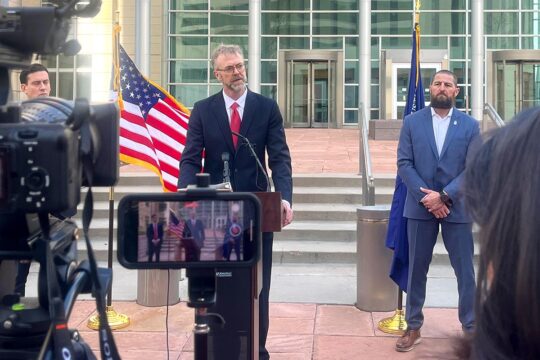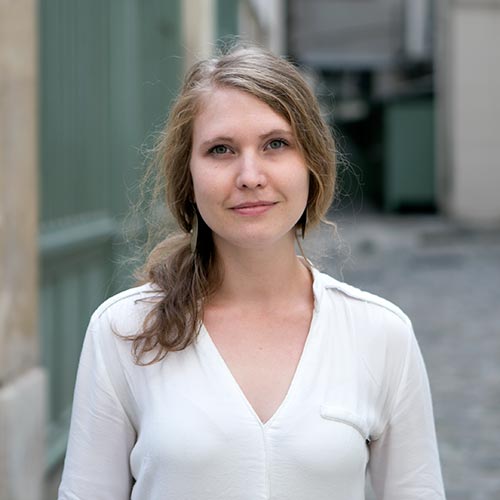Philippe Hategekimana will no longer be speaking. On June 20, the former Rwandan gendarme, who has been on trial in Paris since May 10 for genocide and crimes against humanity, asked to make a brief statement as a precursor to his examination on the merits, the last stage of the trial before the closing arguments. These words will be his last, he promises.
"I've been locked up in this box since May 10, and day after day I hear strangers accusing me of every conceivable crime," declared the accused, reading a paper from his pocket. "Most of these people I don't know. [...] It is obvious that these accounts are not plausible and, moreover, contradict each other." Hategekimana repeats that he's tired. "I can't take it anymore," he says repeatedly. "For more than five years, I've been subjected to unjust accusations and harsh detention. My family has been destroyed, my life ruined."
Hategekimana, a Hutu, recalls that his wife is Tutsi. His wife was due to testify on his behalf, but ended up cancelling at the last minute, citing serious health problems. None of his three children agreed to testify, much to the dismay of court president Jean-Marc Lavergne, who regretted the family's absence. Then, in his desire to emphasize his links with the Tutsis, the accused made a revelation. At the time of the genocide, he claimed to have lived with another woman, with whom he had a daughter, Yvette. She was a Tutsi woman whom he "did everything to save". She is still alive, as is her daughter, he asserts. No one in the courtroom knew anything about this mistress and child, and Hategekimana would not say another word, justifying his silence for "reasons of discretion", since Rwandan society is "very traditional".
"Acknowledging my innocence doesn’t mean denying the genocide"
The accused would like to sum up his position: he says he sincerely sympathizes with the suffering of the victims and is clear about the history of Rwanda in 1994 - "the genocide against the Tutsis is a reality and I witnessed it" - but he "has nothing to reproach [himself with]". On the contrary, he did what he could and "risked [his] life to save people in danger". He goes on to list the names of three families he helped to escape, under the orders of his superior in Kigali, Colonel Rutayisire.
"I was not in Nyanza at the end of April 1994, nor during the month of May 1994," he reiterates. "Acknowledging my innocence does not mean denying the genocide, nor the suffering of the victims." The former gendarme says he is confident that "the truth of my innocence will soon come to light".
But for the time being, to say more is "beyond my strength", says the 66-year-old. And for all these reasons, Hategekimana has decided to stop speaking. "Everything I had to say, I told the examining magistrate and I told you by telling my story," he concludes. The former soldier, who spoke readily on the first day of his trial, responding with verve to the president's questions about what he had done before and after the genocide, will now keep quiet.
In the courtroom, comments were rife. Some of the civil parties' lawyers were annoyed by a decision that cut short any substantive questions, while others wondered whether he would really be able to keep silent. In fact, Hategekimana did not answer any of the questions patiently put by the president over the next two hours, nor did he comment on the numerous extracts from his hearings with the examining magistrate over the past five years.
"No comment”
Late the next afternoon, after the last witnesses had been heard, the same dance began again, with questions from the civil parties and the prosecution.
“Yesterday, several of your contradictory statements were read out at the hearing. Could you finally tell us when you left for Kigali?" asks André Martin Karongozi.
“I have no comment to make, Mr. Lawyer," replies the accused.
“You mentioned another companion and a daughter, Yvette," notes lawyer François Epoma.
“I have no comment.”
Other lawyers try to get him to talk about more general things, about the gendarmerie's hierarchy, its supply of weapons. But they all received the same response, to such an extent that the civil parties became irritated. "Have you ever cried in your life?" says one. "Have you ever lied?" tries another. No comment.
Public prosecutor Louisa Ait Hamou chose to ask all her questions, whether the accused would answer or not. The result was a barrage of precise quotations from Hategekimana's previous interrogations, generally highlighting the contradictions and variations in his account over the years. But it was more like hitting a ball against a wall than a showdown. Question, "no comment"; question, "no comment", and so on. Sixty-four unanswered questions later, the president explained to the accused that "if he does not wish to express himself, he can simply remain silent". Defence lawyer Alexis Guedj railed against the "pressure" the prosecutor had exerted on his client, denouncing Louisa Ait Hamou's admittedly particularly sharp tone. "It's obvious that these aren't questions! Madame is pleading her case," he stormed.
"I'm not Biguma”
Judge Lavergne merely pointed out that if his client wished to remain silent, it is his right - "a right he has no difficulty in exercising, it seems" - but that the parties were just as entitled to ask questions as they wished.
The match resumed, but Louisa Ait Hamou's questions, followed by those of her colleague Céline Viguier, met with silence. Hategekimana no longer looked at them, his gaze turned towards the ground, as if waiting for the storm to pass. "How can you dispute the testimony of the civil parties on the dates and at the same time say that you have forgotten the precise day you left for Kigali?" asks prosecutor Viguier. Silence. Only a question from Louisa Ait Hamou, half an hour earlier, finally brought Hategekimana out of his silence. "Am I to understand [from your silence] that you don't deny being 'Biguma'?" she asked, recalling that this was how most of the victims referred to the gendarme who they allege took part in, or even directed, several massacres in the Nyanza region that spring of 1994. "I am not Biguma," replied the accused.


